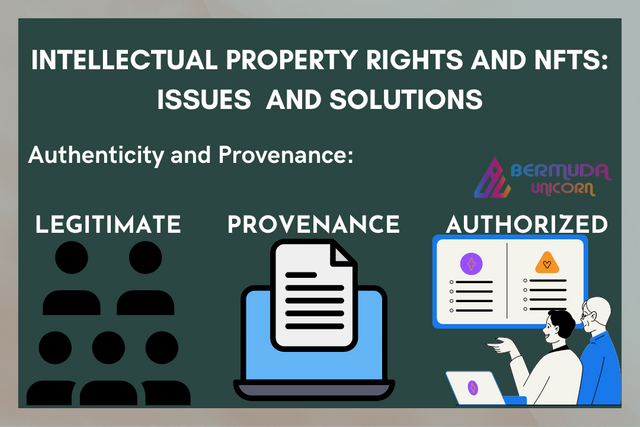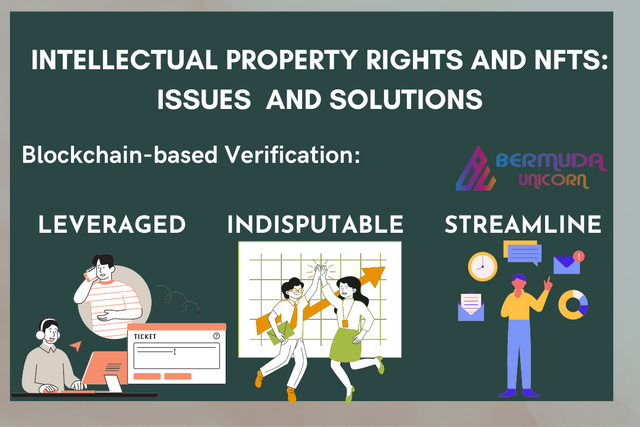Introduction:
The possibility of copyright violations is one of the major problems with NFTs. The ownership and trade of digital assets, like works of art, music, and other creative works, is made possible by NFTs. However, it's not always apparent what kind of ownership of intellectual property these works effectively fall under. To avoid copyright issues, creators and manufacturers must make sure they have the required permits or rights to tokenize and sell their works as NFTs.
NFTs and Copyright:
One of the greatest challenges associated with NFTs is their likelihood for copyright infringement. NFTs enable the ownership and exchange of electronically stored goods, which includes songs, artworks, and other creative works. What sort of intellectual property rights these works truly come under isn't often clear, though. Producers and artists must ensure they have the necessary licenses or rights to tokenize and sell their creations as NFTs in order to avoid copyright concerns.Authenticity and Provenance:

NFTs provide a unique opportunity to establish authenticity and provenance in the digital world. The blockchain technology used in NFTs allows for transparent and immutable records of ownership. This feature can help artists and creators prove the authenticity of their work and ensure that it has not been tampered with or misrepresented. Collectors can verify the provenance of NFTs, ensuring they are acquiring legitimate and authorized digital assets.
Protecting Intellectual Property:
To address the challenges related to intellectual property, creators and artists can take several proactive steps. First, it is essential to register their works with relevant copyright offices or intellectual property organizations. This provides legal protection and establishes a clear record of ownership. Additionally, creators can use watermarks or digital signatures to assert their rights and deter unauthorized use or replication of their work.Smart Contracts and Royalties:https://bermudaunicorn.com/collection/pixel-paradox/
Smart contracts, which are programmable agreements embedded in NFTs, offer a potential solution for ensuring the protection of intellectual property rights. Creators can include terms in the smart contract that specify the conditions under which their work can be used, as well as automatic royalty payments. This ensures that artists receive compensation whenever their NFTs are sold or traded, creating a sustainable revenue stream and incentivizing respect for intellectual property rights.Blockchain-based Verification:

Blockchain technology can be leveraged to develop decentralized platforms for verifying intellectual property rights associated with NFTs. These platforms would allow creators to securely register their works, establishing an indisputable record of ownership and protecting against unauthorized use. Blockchain-based verification systems can enhance transparency and streamline the process of enforcing intellectual property rights in the NFT ecosystem.
- Education and Collaboration:https://bermudaunicorn.com/collection/pixel-paradox/
In order to solve the issues related to NFTs and intellectual property, education is essential. Copyright regulations, licensing agreements, and the ethical usage of digital assets are things that artists, collectors, and platforms need to be mindful of. In order to ensure that intellectual property rights are honored and protected, the collaboration between artists, platforms, and legal professionals may assist create best practices and standards for the ethical creation and trade of NFTs.
Conclusion:
Intellectual property rights now face new complexity and difficulties as a result of NFTs. It is critical to handle the issues related to copyright, authenticity, and ownership even if they present exciting potential for artists, collectors, and investors. We can create solutions that preserve intellectual property rights and guarantee the ongoing evolution of the NFT ecosystem by adopting proactive measures like registering works, using smart contracts, leveraging blockchain-based verification, and encouraging cooperation. NFTs may thrive as a disruptive force in the digital art and collectibles market while upholding the rights of creators and safeguarding the integrity of their work if these concerns are addressed in a responsible manner.